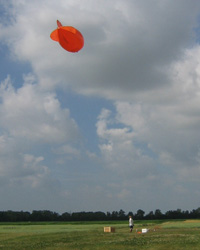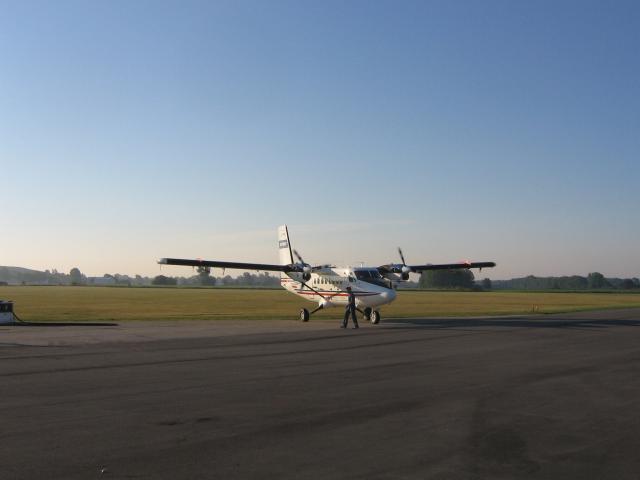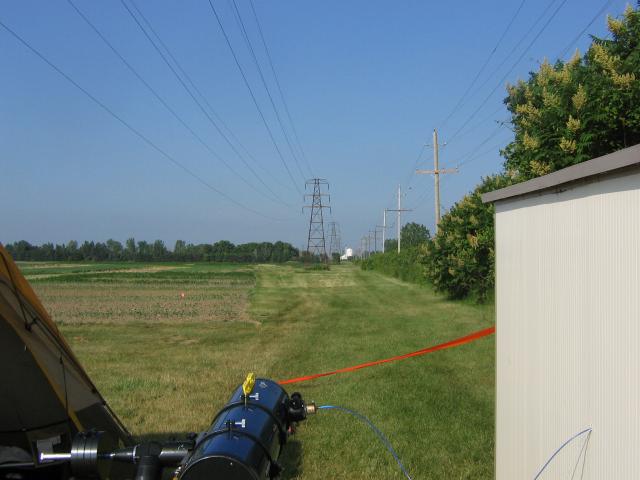 Requirements for graduate students in the program:
Requirements for graduate students in the program:
- student must be enrolled in a graduate program in atmospheric chemistry or atmospheric physics at one of the six universities*
- participate in a six-month research exchange at a research group outside of their home institution
- attend the symposium and summer course – every 2nd year
- participate in laboratory and field training program
- perform policy project requirement
- prepare annual report on your progress and hand-in to the program management committee
Major elements in the training program:
- Summer Course in Atmospheric Chemistry and Physics
- IACPES Symposium
- Laboratory and Field Training Modules
- National/International Exchange Program
- Industrial Training and Liaison
- Atmospheric Policy Component
- Communication Skills Development
- Travel
- Undergraduate Research
1. A three day course of integrated topics in atmospheric chemistry and physics from earth to space is for all trainees supported by the program, and also for undergraduates, graduates and PDFs who wish to attend. Topics that will be covered include (on a rotating basis):
- Chemistry of the natural and polluted atmosphere
- Basic chemical kinetics
- Measuring atmospheric composition from ground and space
- Satellite instruments and measurements
- Aircraft systems
- Radar & wind profilers
- Basic meteorological instrumentation
- Instrumental methods of analysis
- Regional and global modeling, meteorology
- Radiative transfer
- Spectroscopy
- Current issues in atmospheric science
- Planetary atmospheres, etc.
Travel expenses will be covered for graduates supported by the training program.
2. The IACPES Symposium – is a one-day symposium for trainees, applicants, collaborators and the wider community. It will be June 10-14, 2013 at York University. Abstracts will be accepted one month in advance and a program book made available. The day will begin with research presentations by all graduate trainees. This will form part of trainees professional development. The afternoon will be open for presentations by investigators, collaborators and the wider atmospheric community. The goal of the symposium is to co-locate all students and participants in the program, to foster discussion of future research, opportunities for exchange, and professional networking.

3. Laboratory and Field Training Modules – This IACPES week held June 10-14, 2013 will be capped with a day of hands-on training activities (½ day modules) that trainees and others will sign up for in advance. The training activities will take place at York University (and possibly Environment Canada). Some training modules will be open to any interested student who wish to attend, while others of a more specialized nature will be offered with priority to trainees in the IACPES program. Development of several modules is anticipated, not exclusive to the following list of possibilities (location):
- basic air quality instrumentation (CAC-AQRS)
- basic meteorology measurements (ESSE-Weather Station)
- lidar measurements and systems (CRESS-Lidar Observatory)
- aerosol mass spectrometry (Env. Can.)
- smog chamber techniques (CAC-smog chamber)
- satellite instrumentation (CRESS)
- airborne measurement systems
- computer simulations
IACPES trainees will attend modules outside their direct area of specialization.
4. National/International Exchange Program – An exchange program will form an integral part of the training of graduate students in the program. The exchange (≥ 6 months), will be mandatory for PhDs and optional with shorter periods for MSc students. Travel expenses and housing assistance will be covered by the program for all students accepted in the program.
5. Industrial Training and Liaison – Travel to industry-run workshops or other technical training activities will be encouraged and supported for all IACPES trainees.
6. Atmospheric Policy Component – An important skill often lacking in scientists is the ability to distill scientific information and to communicate it to non-scientific decision makers. A professional development element in the program will incorporate a policy component into the training of all MSc and PhD students. Trainees will be asked to visit with several policy experts in the federal, provincial and municipal governments. Several of these short visits will help the students choose a policy topic, possibly related to their research, or possibly some other atmospheric theme. They will perform a research synthesis of the topic, complete a short report (MSc) or paper/manuscript (PhD), and present the results to a suitable audience including government policy experts and scientists. The purpose of this training element is to encourage students to think beyond the science, to expose students to a network of government policy contacts, and to provide future opportunities to those students who might find a niche in the science/policy/management arena, an area that is desperately in need of scientifically trained individuals with proper communication skills.

7. Communication– As part of the professional development, all trainees will receive training in public speaking and delivery of lectures (scientific and non-scientific audiences). Beyond their normal institutional requirement, each student will deliver a research lecture at the IACPES symposium. For students only, these lectures will be videotaped with the exclusive purpose of providing valuable professional feedback and suggested methods for improving their public speaking abilities. These services are available through the Centre for Support of Teaching at York University. Each student will receive back a copy of their lecture, and will be provided with feedback and constructive criticism.
8. Travel to Conferences. IACPES Graduate students traveling to conferences of the caliber of the Fall AGU or better will be supported for up to $1K, per student per year – on condition that the student is presenting a poster or giving a talk. Students should apply to IACPES prior to attending. A report about the conference, presentation information, etc., will be required on return. The application should give the name of the conference, place, etc., and your reason for attending, name of poster/talk, etc.
9. Undergraduate Research – Promising undergraduates of high caliber will participate in the training program. Where possible, a graduate member of the training program will be charged with the supervision of such undergraduates, to assist in a collaborative research project. This will aid the graduate trainee in developing management and supervisory skills. As part of their professional development, undergraduates will be required to deliver a research report to Program Management Committee and a research lecture to an appropriate group of peers at the end of their project. Undergraduates who are local, will be encouraged to participate in the training modules during IACPES week, and to sit in on sessions on the summer course. An informal undergraduate exchange, between IACPES investigators/collaborators will also be supported.
Funding for this Program is provided by NSERC.
